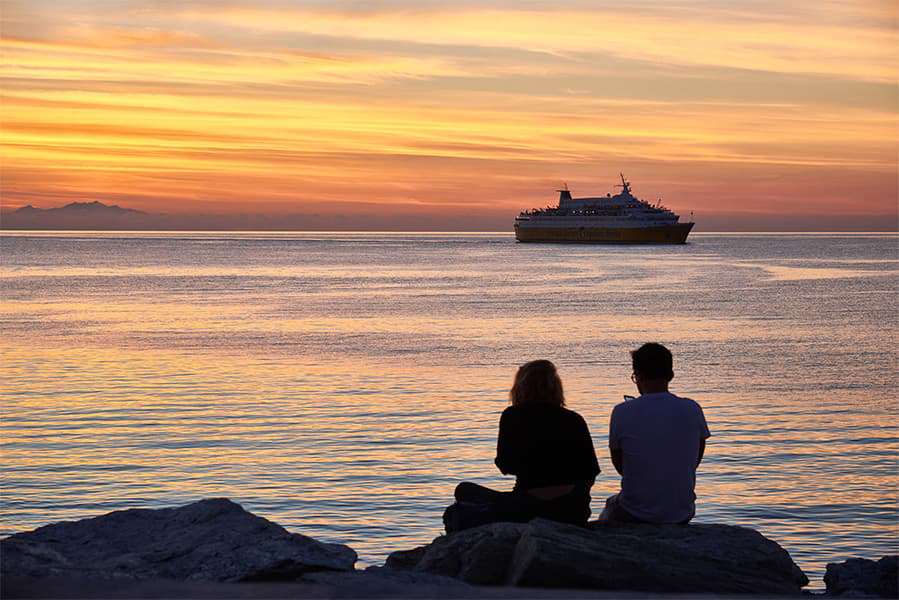Rosyth - Zeebrugge
Ferries to Belgium
Rosyth - Zeebrugge
Ferries to Belgium

At Direct Ferries we’re completely impartial and focused on helping you find the best fares on Rosyth Zeebrugge crossings between Scotland and Belgium quickly and easily.
Using our Fare Search you can check real time prices, availability and book ferries from Rosyth to Zeebrugge or alternatively compare this route or the ports with other options.
Simply select the country of departure and then Rosyth Zeebrugge or another route if you prefer followed by number of passengers travelling on the ferry and hit search!
More routes than anyone else.

Compare fares, times & routes in one place.
Change plans easily with flexi tickets.

Book e-tickets & manage trips in-app.
Live ship tracking & real-time updates.

Top-rated customer support when you need it.
Rosyth (pronounced Ross-sythe) (Scottish Gaelic: Ros Saoithe) is located on the Firth of Forth on Scotland's east coast, a mile (1.6 km) south of Dunfermline, Fife, and approximately 12 miles (19 km) north west of Edinburgh. The area is best known for its large dockyard, formerly the Royal Naval Dockyard Rosyth, construction of which began in 1909. The town was planned as a 'garden city' with accommodation for the construction workers and dockyard workers. Today, the dockyard is almost 1,300 acres (5 km²) in size, a large proportion of which was reclaimed during construction. Rosyth's dockyards became the very first in the Royal Navy to be privatised when a company acquired the site in 1997. The privatisation followed almost a century of contribution to the defence of the United Kingdom which spanned two World Wars and the Cold War with Russia (during which Rosyth became a key nuclear submarine maintenance establishment).
Zeebrugge (meaning "sea landing) is a harbour-town on the coast of Belgium, a subdivision of Bruges, for which it is the modern port. It serves as an international Port and a seafront resort with hotels, cafés and beach. Zeebrugge has been instrumental in Brugge's reinvigoration as a city, which unfortunately lost its harbor to silting hundreds of years ago. The construction of the new seaport at Zeebrugge began at the turn of the 20th century and the city's reputation as an art and tourist center for Northern Europe began its revival. The marina is also Belgium’s most important fishing port, and the wholesale fish market located there is one of the largest in Europe. Aside from being a passenger port with ferries to the UK, the harbour serves as the central port for Europe's automotive industry and is important for the importation, handling and storage of energy products, agriculture products and other general cargo.